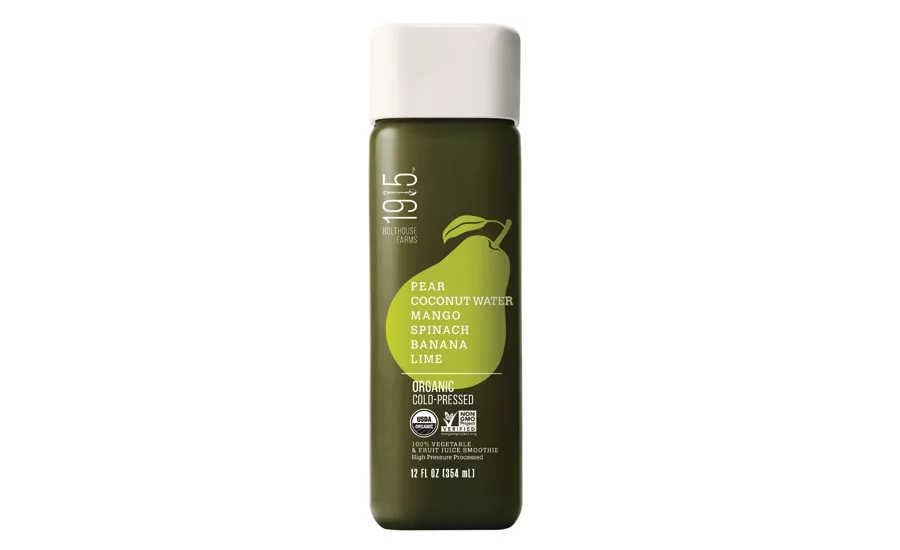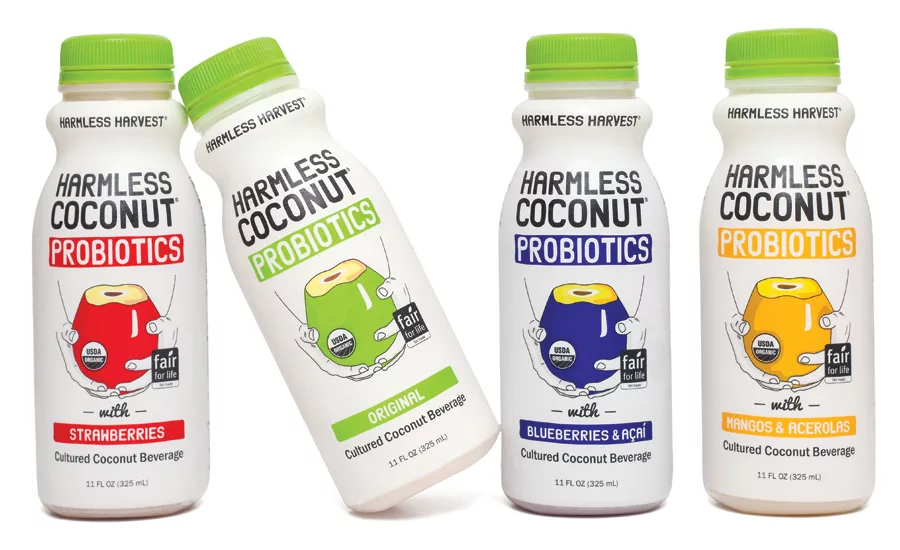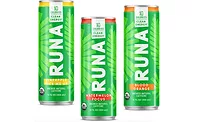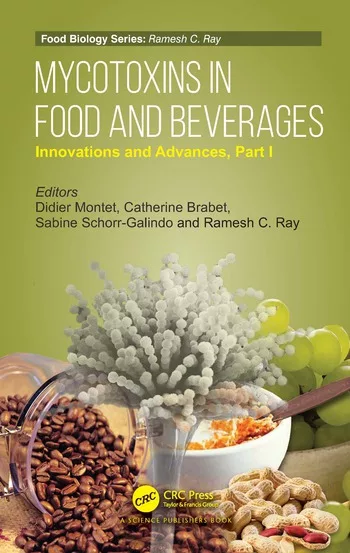Millennials help drive tropical fruit usage in beverages
Quality, safety within supply chain vital when incorporating exotic fruits


Chef Roger Mooking loves giving traditional dishes an exotic twist on his Food Network Canada TV show “Everyday Exotic.” Consumers’ desire for exotic flavors also has helped push tropical fruits into mainstream beverage formulations. Yet, ingredient suppliers note that the growing demand for exotic fruits also taps into broader, mainstream trends.
“Formulations with exotic fruits are definitely on the rise,” says Jennifer Smith, product development supervisor for Northwest Naturals, Bothell, Wash. “The demand for more health-focused blends is pushing this demand forward. People are more health conscious with their food and beverage choices and want to know [that] what they are consuming is beneficial for them.”
Alison Raban, certified food scientist with Rancho Dominguez, Calif.-based BI Nutraceuticals, highlights that the use of exotic fruits continues to grow through new beverage launches.
“Within the food and beverage industry, and especially in the beverage segment, exotic fruits still make up a sizeable portion of new product development and launches, and it is only increasing,” she says. “This should come as no surprise considering the consistent growth in popularity of tropical fruits. For many beverage manufacturers, line extensions provide the perfect opportunity to experiment with unique fruits and flavors, leading to increased consumer familiarity and, consequently, increased consumer demand. There are several factors that contribute to the trend of exotic fruits, but overall it is the consumer’s desire for health and innovation that has pushed manufacturers to think outside the box, beyond apple, orange and grape.”
Raban notes that acai helped spark interest in tropical fruits in years past, but as beverage categories have evolved, so, too, have innovation efforts with these fruit sources.
“The boom of the superfruit acai planted the seeds of interest in consumers. Consumers were more willing to try new flavor profiles after that, especially those with health halos surrounding them,” she explains. “The rise of fresh-pressed juices and high-end [ready-to-drink] (RTD) teas also played a role since these delivery formats are ideal to incorporate exotic fruits and flavor profiles. From a foodservice standpoint, specialty cocktails and menus featuring mixology highlighted exotic fruit juices and fruit-flavored liquors.”
Northwest Naturals’ Smith adds that trends for cleaner, health-conscious solutions in the consumer packaged goods market have increased new product development incorporating exotic fruits. She credits this push to millennials and their “desire to try new ‘exotic’ flavors.”
Don Giampetro, vice president of innovation and quality with Lawrenceville, N.J.-based iTi Tropicals, also highlights the impact millennials have had on the use of tropical fruits in new products.
“Millennials continue to drive the growth of exotic fruit and flavors in general in the beverage category,” Giampetro says. “They seek out new and exciting flavor combinations to which tropical [fruits] lend themselves well. In addition, as the populations of different ethnic groups grow in the U.S., so do exotic and tropical flavors.”
However, the baby boomer generation also is exploring tropical fruits, explains Northwest Naturals’ Smith. “The other end of the spectrum is the health benefits for the baby boomer generation,” she explains. “They are living longer and looking for ways to get extra health benefits from their food and beverage choices.”
Although the use of exotic fruits has grown, iTi’s Giampetro notes that some fruits are performing better than others.
“Overall, we see [use] increasing,” he explains. “There are areas of stability; however, items like coconut continue with rapid growth. Other tropicals and exotics still contribute a great deal toward new product innovation/development. Right now, they tend to be secondary flavors, but we are seeing a shift toward the lead flavor in some cases.”
First-class formulations
As beverage-makers look to incorporate tropical fruits in their formulations, they have many factors to consider, including — but not limited to — commoditized imported fruits, supply chain costs and demands, as well as quality.
Kristen Doran, technical services and innovation manager with iTi Tropicals, explains that using commoditized fruits can help keep costs in check when developing beverages with exotic fruits.
“Using tropicals/exotics in combination with commoditized fruits allows for products with added value and benefits,” she says. “Banana, for example, is very, very low cost, and a tremendous asset in building beverages, smoothies, etc. Overall, cost is only one aspect. Quality, safety and making a fantastic finished product are the keys.”
Northwest Naturals’ Smith also notes the importance of considering costs and the supplier source when deciding to use exotic fruits.
“The challenges are suppliers, as there might be only a single supplier for one type of exotic fruit,” she says. “Also, consistency of that product based on seasonal variations. This will effect both supply and demand, as well as pricing for that product.”
BI Nutraceuticals’ Raban echoes similar sentiments about formulation considerations. “There of course will be a difference in cost when importing fruits or fruit juices versus sourcing it domestically,” she says. “However, cost should not be the only consideration. Formulators and beverage manufacturers need to take quality, consistency, availability, and, arguably the most important, taste into consideration when formulating with exotic fruits. Similar to botanicals, keep harvest times in mind, sometimes buying at the right time can make a huge difference in price.”
Despite these challenges, beverage formulators are finding more ways to incorporate exotic fruits. Among those ways is with hybrid flavors.
“We see a lot of familiar fruits being blended with more exotic fruits, which helps to make these newer fruits more approachable,” iTi Tropicals’ Giampetro says. “Fruits and vegetables as ingredients in various products are growing and exotics/tropicals have a natural fit. We see fruit moving outside just the beverage category into energy bars, salad dressings and ice creams to help support the growing plant-based vegan movement. When you blend already delicious fruit juice with coconut water, you can offer your customers lower sugar/calorie and high juice content options.”
BI Nutraceuticals' Raban also highlights the benefits of hybrid formulations. “Utilizing hybrid flavors is a great way to incorporate exotic fruits in beverages of all types,” she explains. “Often exotic fruits are incorporated in a beverage as a secondary flavor since a successful tactic is utilizing a common flavor profile with an added unique ingredient. This entices the consumer without completely removing their familiarity with the product. A great example is peach mango. This flavor combination opened the door to consumer familiarity with mango, and today it is able to be a standalone flavor.”
Going forward, ingredient suppliers expect tropical fruits to grow in importance in the beverage market.
“The future is bright for continued growth of exotic fruits in the marketplace,” Northwest Naturals’ Smith says. “The demand from consumers — both young and old — for cleaner products that have added health benefits is expected to continue well into 2018 and beyond.”
iTi Tropicals’ Doran echoes similar sentiments: “The sky’s the limit. You are limited by your imagination only. Try using exotic fruits in place of natural flavors to enhance your beverage and provide a cleaner label. As long as supply continues with high-quality, safe and secure product, growth will continue.”
Another factor that could fuel future growth of exotic fruits is consumers’ desire for lower sugar content in products. BI Nutraceuticals’ Raban highlights that some tropical fruits would fit nicely into this growing trend. “From a purely speculative point of view, exotic fruits that are low in sugar, like lucuma and monk fruit, are poised for dramatic growth,” she says. “Similar to coconut water, where it delivered on consumers' need for balanced health and taste, finding exotic fruits that are low in sugar could be the next horizon for exotic fruits in the beverage industry.” BI
Looking for a reprint of this article?
From high-res PDFs to custom plaques, order your copy today!








